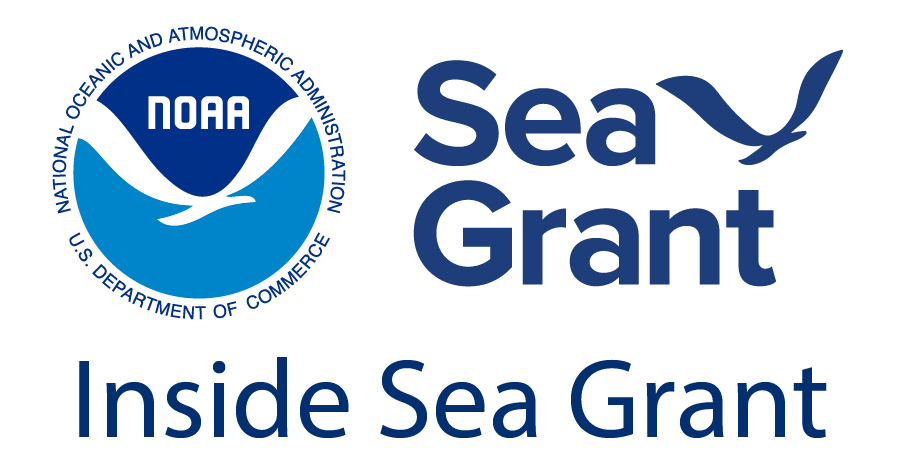Resources for Research Coordinators
Congratulations on being appointed as a Sea Grant Research Coordinator! Research Coordinators (RC) play a very important role, not only in their state Sea Grant programs, but also in the broader coastal, ocean and marine science enterprise. Depending on the program, an RC may have a full-time or part-time appointment. Some RCs conduct research in addition to serving as Sea Grant RC. In a very few programs, the Sea Grant Director also does the duties of the RC.
Each state Sea Grant program is represented by at least one person on the network-wide, Sea Grant Association (SGA)-sponsored Research Coordinators Network (RCN; see RCN bylaws here). The network meets at least quarterly throughout the year to support each other in the RC role by sharing resources, ideas, and concerns. RCs also communicate and share resources via Basecamp and Google Drive. New RCs can get access to these resources by contacting current RCN leadership.
The resources shared below were specifically developed for RCs. Additional onboarding materials for the broader Sea Grant Network can be found here: https://seagrant.noaa.gov/insideseagrant/onboarding.
RCN Leadership (2023-2024)
Chair: Kristen DeVanna Fussell, Ohio Sea Grant
Chair-elect: vacant
Past-chair: Carolyn Foley, Illinois-Indiana Sea Grant
RCN Liaisons (as of 2021)
National Sea Grant Office: Rebecca Briggs
Sea Grant Association: Julie Anderson Lively
THE ROLE OF THE RESEARCH COORDINATOR
Local Sea Grant programs invest large portions of their funding toward research and education competitions, many of which are directly managed by an RC. RCs help shape the science agenda for their local Sea Grant program by incorporating stakeholder needs and perspectives into competition calls, identifying place-based science needs, and working with the Director and other leadership team members in their local (often state) Sea Grant programs to establish research priorities. In time, RCs may become involved in helping prepare the coastal, ocean and marine science workforce, develop scientific infrastructure, and ensure that diverse institutions and individuals across the entire geographical region of their state can take advantage of Sea Grant research and fellowship opportunities. Remember that all Sea Grant Programs are unique, and that you should work with members of your state Sea Grant program to understand your specific role in your program.
KEY LINKS FOR NEW RCs
These links outline official policy or guidance documents per the National Sea Grant Office (NSGO). If you have questions about their use, you should reach out to your Program Officer as a point of first-contact.
- National Sea Grant Competition Policy – Outlines specific national guidelines on how a Sea Grant competition must be conducted.
- Sea Grant Research Coordinators: Good Practices and Other Ideas for Running Competitions – A document of recommendations that includes tips and tricks for running competitions, plus sample text to use at different steps of the competition process.
- Sea Grant General Application Guide – This guide is useful to reference when preparing grant application packages to be submitted to the National Sea Grant Office.
- Forms and Templates – The Inside Sea Grant webpage includes links to the most recent forms and templates that are required for proposal development, including Abbreviated Environmental Compliance form (NEPA), Data Management, and budget forms and templates.
- National and State Sea Grant Funding Opportunities – A current list compiled by the National Sea Grant Office (NSGO).
ADDITIONAL LINKS FOR NEW RCs
- Tasks Typically Assigned to a Sea Grant Research Coordinator – General description of the RC’s role, though individual state programs frame the RC role in different ways.
- Example 2-Yr Cycle of RC Activities – A document that outlines the real-time activities of a typical Sea Grant RC.
- Reference Table for Where to Find Helpful Information – A table summarizing useful information for RCs.
- eSeaGrant Community of Practice – Sea Grant network-led initiative to discuss and share information about the eSeaGrant system, a third-party software system that many programs use to manage competitions and reporting (contact Madelyn Wampler, California Sea Grant; contact Alan Desbonnet, Rhode Island Sea Grant; Katie Lea, Louisiana Sea Grant; Stephanie Ichien, Oregon Sea Grant).
- Justice, Equity, Diversity, and Inclusion (JEDI) Community of Practice – Sea Grant network-led group that meets quarterly to discuss JEDI issues. This webpage includes a compilation of JEDI-related resources and information shared through the community of practice (contact Beth Lenz, Hawai’i Sea Grant).
- Reporting and Evaluation Community of Practice – Sea Grant network-led initiative to streamline reporting and evaluation efforts (contact Katie Lea, Louisiana Sea Grant).
- Training Resources – these may be particularly helpful for RCs and/or Fellowship Coordinators.
RCN-DEVELOPED MATERIALS THAT CAN BE USED ACROSS THE SEA GRANT NETWORK
A Case Study of the Importance of Publicly-Funded Research to Coastal Regions
Washington Sea Grant Research Staff compiled information about state competition processes (this document highlights different ways state programs may choose to set up their competition)
Sea Grant Research (a report of the National Sea Grant Advisory Board)
Sea Grant Research Coordinator Job Structure Survey. While considering how to restructure the RC position for their program, Minnesota Sea Grant RC Valerie Brady polled the network on how their positions were structured. This document summarizes the results.
